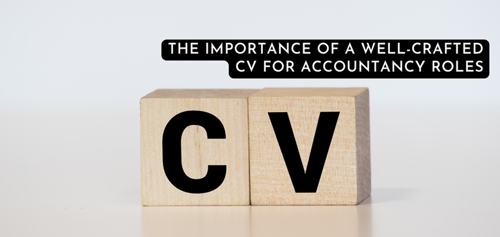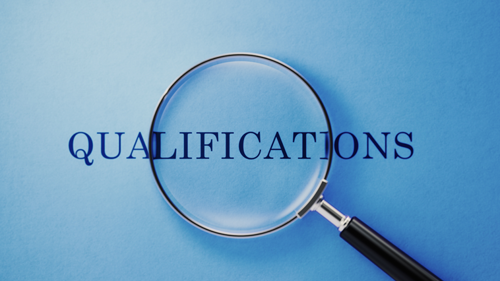

When applying for accountancy roles, your CV serves as your first impression. It is the document that introduces you to potential employers and showcases your skills and qualifications. Therefore, it is essential to invest time and effort into creating a well-crafted CV that stands out from the competition.
Accountancy positions require individuals with attention to detail, analytical thinking, and strong numerical skills. Your CV should highlight these attributes and emphasize how your unique skills and experiences align with the requirements of the role. By presenting yourself as a capable and competent accountant, you increase your chances of getting noticed by employers.
To create an effective CV for accountancy roles, it is crucial to understand what employers are looking for in candidates. Employers in the accounting industry typically seek individuals who possess a combination of technical accounting skills, relevant experience, and professional certifications.
In addition to technical skills, employers also value attributes such as professionalism, integrity, and the ability to work well under pressure. Demonstrating these qualities in your CV can give you a competitive advantage in the job market.

When structuring your accountancy CV, there are several key sections you should include to ensure that you present a comprehensive and well-rounded profile to potential employers. These sections include:
1. Personal Information
Start your CV with your personal information, including your full name, contact details, and professional social media profiles, if applicable. This section should be concise and placed at the top of your CV for easy reference.
2. Professional Summary
Immediately after your personal information, include a professional summary that provides a brief overview of your background, experience, and career goals. This section should highlight your key skills and qualifications, making it easier for employers to quickly assess your suitability for the role.
3. Education and Qualifications
List your educational background, starting with the most recent degree or certification. Include the name of the institution, the duration of the program, and any honors or awards received. If you have obtained any relevant accounting certifications, such as Certified Public Accountant (CPA) or Chartered Accountant (CA), be sure to highlight them in this section.
4. Skills and Technical Competencies
In this section, highlight your technical skills and competencies that are relevant to the accountancy field. Include proficiency in accounting software, such as QuickBooks or Excel, as well as any other specialized skills, such as tax preparation or financial analysis. Be specific and provide examples to showcase your expertise.
5. Work Experience
Detail your work experience in reverse chronological order, starting with your most recent position. Include the company name, job title, dates of employment, and a brief description of your responsibilities and achievements. Use action verbs to describe your accomplishments and quantify them whenever possible. For example, instead of stating "Managed financial records," say "Managed financial records for a $10 million budget."
6. Professional Affiliations
If you are a member of any professional accounting organizations, such as the American Institute of Certified Public Accountants (AICPA) or the Association of Chartered Certified Accountants (ACCA), include this information in this section. Being a member of these organizations demonstrates your commitment to the industry and can enhance your credibility as a professional accountant.
7. Additional Information
In this section, include any additional information that may be relevant to the role or showcase your unique qualities. This can include language proficiency, relevant volunteer work, or any other skills or experiences that differentiate you from other candidates.

Accountancy is a field that values academic qualifications and professional certifications. When highlighting your academic qualifications in your CV, ensure that you include relevant information such as the name of the institution, the degree or certification obtained, and the dates of study. If you have achieved any honors or awards during your academic journey, be sure to mention them as well.
In addition to academic qualifications, professional certifications can significantly enhance your CV. Certifications such as the CPA or CA demonstrate your expertise and commitment to the accounting profession. Include the name of the certification, the issuing organization, and the date of certification in your CV. This information can help employers quickly assess your level of expertise and qualifications.
In the digital age, proficiency in accounting software and other technical skills is highly valued by employers. When listing your technical skills in your CV, be specific about the software programs you are proficient in. For example, instead of stating "Proficient in accounting software," mention specific software such as QuickBooks or SAP.
If you have experience with the advanced features of these software programs or have completed any relevant training, be sure to mention it in your CV. Employers are often impressed by candidates who have a strong technical foundation and can hit the ground running with minimal training.
Attention to detail and accuracy are critical skills for accountants. Employers expect accountants to be meticulous in their work, as even a small error can have significant consequences. To showcase your attention to detail and accuracy in your CV, ensure that your document is error-free and well-formatted.
Proofread your CV multiple times to catch any spelling or grammatical errors. Use clear and concise language, and avoid unnecessary jargon or acronyms. Additionally, pay attention to the formatting and layout of your CV. Use headings, bullet points, and a consistent format to make it easy for the hiring manager to navigate and understand your CV.
By following these tips and investing time and effort into crafting a well-crafted CV, you can elevate your chances of securing that coveted accountancy role. Remember, your CV is your opportunity to showcase your skills, experiences, and qualifications to potential employers. Make it count!
Need additional help with building your CV or exploring your options within the Accountancy field?
Get in touch now and let one of our recruitment specialists help you out!
